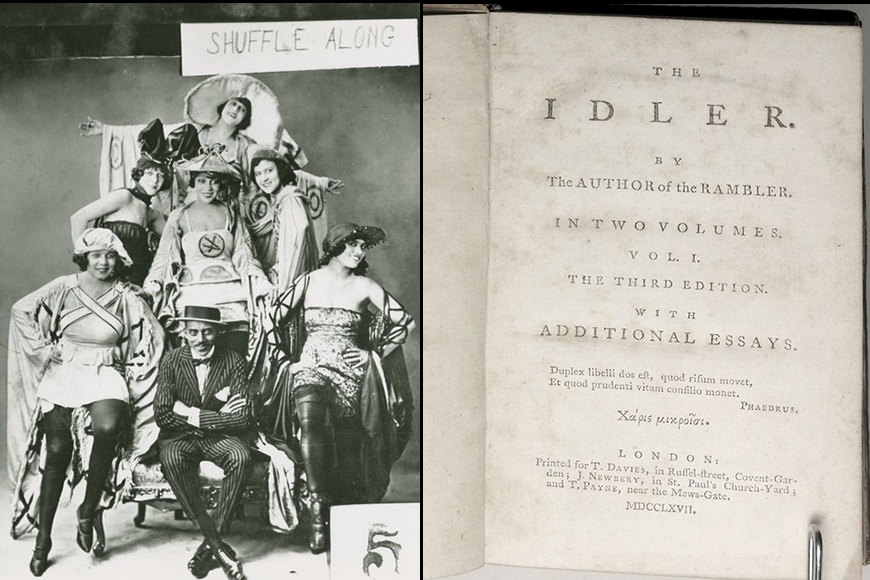Josephine Lee and Amit Yahav: Works in Progress
Join the Department of English to hear about our professors' cutting-edge research and writing! Each professor will speak for 20 minutes, and there will be time for questions. Register for this Zoom event.
Professor Josephine Lee will present an overview of her new book project, Orientalism in Black and White, on the confluence of Black and oriental representations in 19th and early 20th century commercial American theater. Lee surveys a range of genres including pantomime, minstrelsy, melodrama, vaudeville, and musical theater, and emphasizes the different ways that white and African American performers enacted racial stereotypes of opulence and deception, comic servitude, and exotic sexuality. These combined enactments of blackface, yellowface, and brownface urge us to think about the early history of American theater beyond a white/nonwhite binary as well as how particular actors and productions codified various habits of racial performance both on and off the stage. Professor Lee is a professor of English and Asian American Studies and the Editor in Chief of The Oxford Encyclopedia of Asian American Literature and Culture (2020). Her books include The Japan of Pure Invention: Gilbert and Sullivan’s The Mikado (2010) and Performing Asian America: Race and Ethnicity on the Contemporary Stage (1997).
Associate Professor Amit Yahav will present a short excerpt on Mansfield Park from a book chapter she recently completed, "In Praise of Vacuity," on Samuel Johnson and Jane Austen. This chapter builds on the essay "Austen’s Literary Time," which Yahav wrote for The Routledge Companion to Jane Austen, edited by Maria Frawley and Cheryl Wilson (in production). (Email sutt0063@umn.edu for pre-circulated pdf of the Routledge Companion piece, which provides context for the oral presentation.) Yahav is the author of Feeling Time: Duration, The Novel, and Eighteenth-Century Sensibility (2018).
An abstract of Professor Yahav's book chapter:
“In Praise of Vacuity" demonstrates how Johnson’s Idler series—for all its minority in the Johnson canon—develops an especially interesting theory of leisure, which Austen draws on in her analysis of leisure in Mansfield Park. I trace in the Idler series and in Mansfield Park varying manifestations of three analytical lines that together, I argue, demonstrate the crystallization of a modern revaluation of leisure reading. Responding to an economic reality in which increasing numbers of people have more time and money to spare, both authors highlight the redistribution of leisure in time, rather than across classes of persons. They reconceptualize leisure not as a specific set of activities but rather as a peculiar state of consciousness—one of valuable, albeit temporary, vacuity and inaction. They also develop a form of realist representation that insists on the worthiness of populist entertainment in promoting such periodic inaction and vacuity. Examining Johnson’s and Austen’s conceptions of leisure helps us recognize a peculiar approach to literary value, one that celebrates the capacity of literature not so much to delight as it teaches, but to promote breaks from an overbearing regime of productivity and growth, while remaining within this world rather than fully breaking away from it. From the perspective of this approach to leisure, literature’s escapism—what Terry Eagleton has identified as its function within the ideological state apparatus to encourage individual retreat from collective action—is crucially combined with a framework of periodicity that insists on on-going alternations between time for doing and time for rest, and aligns varying representations and reading practices with each.
For all questions and accessibility information, please email Terri Sutton at sutt0063@umn.edu
